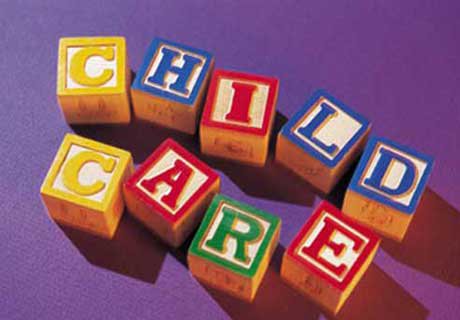
Choosing the Right Child Care Setting for your Child
Daycare, and nannies, and au pairs, oh my! There are a myriad of childcare choices available to families today, but figuring out which option is best is no easy task. Parents of young children have a particularly difficult job, because care providers for children under two are not as prevalent as those for older children. Because babies have more needs than older children, they require a higher level of care – that translates to higher costs for care centers and parents. Deciding on the right care setting for your little one is a big decision, requiring careful thought, research and planning. Before you decide which option is best for you, consider the following factors.
Money
Parents know that childcare will be expensive, but few are prepared for the shock of the actual dollar amount – even for those seeking part-time care. Looking at the total cost of child care per month can be scary. But stay calm. This is an important investment, so re-examine your family finances before making any decisions. Determine a monthly range that your family can afford. For example, if you figure you can spend around eight hundred dollars per month, are you prepared to spend nine hundred if a certain month has an extra week? Will you be able to spring for incidentals such as field trips and fundraisers? Always give yourself a cushion for unexpected tuition changes, occasional nights out (and hiring a babysitter), or little odds and ends that arise.
Flexibility
While flexibility in the workplace is fairly common, especially for parents of young children, it isn’t yet an option everywhere. When you decide on a child care solution you also need to take into account your work schedule. What will happen if your child gets sick? Are you able to leave work early or arrive late? Also consider schedule conflicts. Daycare centers may close on certain holidays when you have to work. A babysitter or nanny may get sick at the last minute and not be able to make it. Create a realistic back-up plan that you, your family and your employer can live with so you aren’t scrambling to handle surprises that may pop up.
Expertise
No one is going to care for your child in exactly the same way you do. Even if you have family members or the most agreeable babysitter in the world, there are bound to be some differences. And that’s not a bad thing. Kids need to learn to adapt to different people’s personalities and preferences, while also expressing their own. Just make sure your expectations for behavior and meeting basic needs are consistent. The reality is, expertise with young children is not easy to come by. Laws vary by state regarding teacher-student ratios for children under two; as a result, many daycares don’t accept infants. When you find a person or center that feels right, ask about the experience of individuals who will interact with your child. What are their educational backgrounds? How long have they worked with kids of this age? Are they certified in infant First Aid/CPR? Parents need to weigh how important these things are to them, and determine their deal-breakers.
Health
Most pediatricians will tell you that the average child gets between four and eight colds per year. This doesn’t seem so bad, but when you realize that most of them will happen between late fall and early spring, and that a “cold” can last up to two weeks, it may start to feel like your child is perpetually sick. As a result, you are constantly stressing, missing work, or scrambling for last minute care.
If your child is cared for in a setting with other children, chances are she’ll have a few unexpected visits to the doctor, or at best, a very runny nose. While the general consensus is that the first year in a daycare-type setting is the worst for sicknesses, the ailments don’t end after that. If your child is particularly sensitive to seasonal illnesses, you may want to find a temporary one-on-one care solution, or review the sanitation procedures at the daycare.
If you have a nanny, find out upfront if she is comfortable caring for a sick child. You don’t want to find out on your way out the door that your babysitter doesn’t know how to take a temperature or is nervous about giving medicine.
Philosophy
This is probably the single most important aspect when choosing childcare for young children. Because your child will be spending a lot of time with his caregiver, he’ll be learning a lot of behavioral and problem solving cues. You need to figure out how the caregiver’s philosophy on learning, setting limits, and maintaining schedules matches up with your own. This can be tricky regardless of what type of care you have. Make a point of observing your child in the setting for an hour or so before committing. You can also ask his teacher or babysitter how they handle certain situations like tantrums and conflicts. The conversation may be awkward, but at least you’ll know if you are on the same page.
Finding quality care is possible if parents do their homework. Take a good long look at each of these areas before making a commitment. But don’t stop there. Revisit these topics periodically to make sure your child care solution is meeting your child’s needs and making sense for your family.
Beth Fornauf is a freelance writer and mother of two.
Views: 1




